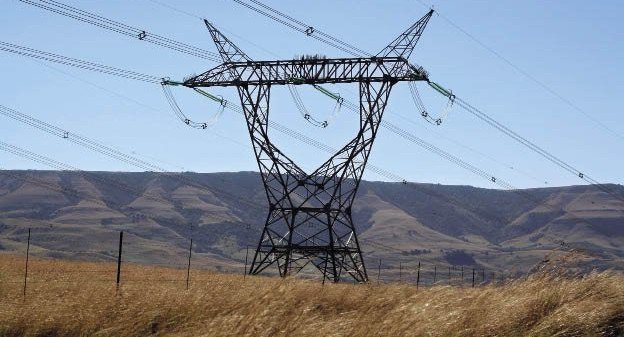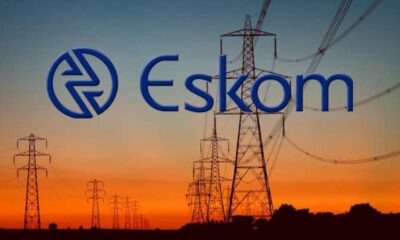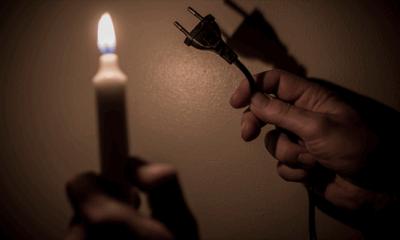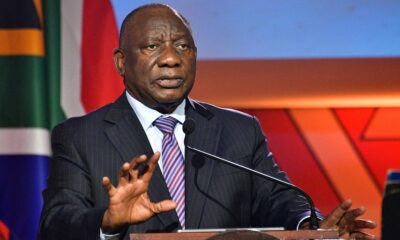News
Plugged In, Shut Out: Why SA’s Power Sector Remains Stuck in the Dark

Eskom’s grip on the grid is choking growth and reforms are dragging too slowly to fix it
In a country where “load-shedding” has become part of daily vocabulary, it’s hardly surprising that South Africa’s electricity sector is now officially one of the worst-performing in the world. That’s not just local frustration talking, it’s the Organisation for Economic Co-operation and Development (OECD) making the call in its latest economic survey of South Africa.
According to the OECD, South Africa has the second-most heavily regulated electricity sector globally, which massively limits new power generation. In plain terms: Eskom is too dominant, competition is too restricted, and the reforms promised to fix the crisis are taking far too long to matter.
The Electricity Trap That’s Holding SA Hostage
Eskom still generates 91% of the country’s electricity, and owns most of the transmission and distribution infrastructure. This monopoly means new entrants face huge hurdles when trying to contribute to the grid, especially private renewable energy players, many of whom are locked out unless they’re handpicked through state procurement.
Even when private providers get a foot in the door, they’re often forced to wait on municipal approvals, and most municipalities aren’t equipped (or willing) to greenlight embedded generation quickly.
This structure doesn’t just hurt innovation and investment, it also makes the country dangerously reliant on Eskom’s ageing coal fleet, which continues to falter. The result is a nation in a holding pattern: unable to scale up, and vulnerable to every bump in the demand curve.
The Cost of Being Late to the Energy Transition
The stakes are high. If South Africa can’t open up its electricity market soon, it won’t just be stuck with load-shedding, it’ll miss its climate goals, lose out on investment, and continue to pay more than necessary for basic power.
And yes, the government has started to act. 2024 saw the creation of the National Transmission Company of South Africa (NTCSA), an Eskom subsidiary with its own board, designed to manage the grid more fairly. There’s also the Electricity Regulation Amendment Act, passed last year to build a competitive market framework.
But the OECD says these reforms need to move faster and go deeper. The market isn’t even expected to begin operating until 2026, and only with a limited number of participants. That timeline doesn’t line up with Eskom’s looming coal plant shutdowns, nor the urgency of SA’s growth crisis.
Could Households One Day Choose Their Power Provider?
Here’s where it gets interesting. One of the OECD’s bolder recommendations is to open up electricity distribution and trading to private competition, even at the municipal level. That would mean that, eventually, households and businesses could choose their electricity provider, much like mobile phone users choose a network.
To get there, the grid operator functions and trading activities would need to be separated, and Eskom’s generation and distribution arms fully spun off. These changes would not only boost efficiency and service delivery — they’d break the deadlock that’s kept load-shedding alive for over a decade.
The Real Hold-Up: Bureaucracy and Power Politics
Why is all this moving so slowly?
Part of the answer lies in institutional bottlenecks, old rules, conflicting mandates, and a lack of skilled administrators at municipal level. But another part is political. Eskom is not just a utility; it’s a symbol of state control, union power, and historic policy inertia. Breaking it up means stepping on powerful toes.
And yet, doing nothing guarantees more of the same: blackouts, rising costs, and an economy shackled by its own utility.
SA Can’t Afford More Delay
The OECD’s report is a wake-up call, but not a new one. South Africans have been living with the consequences of a broken electricity system for years.
What’s new is the mounting global pressure to clean up the grid, let private sector innovation in, and finally unbundle Eskom in practice, not just on paper.
With energy security directly linked to economic recovery, the time for cautious reform is over. South Africa must either fast-track these changes or risk becoming the permanent black sheep in the global energy transition.
{Source: Daily Investor}
Follow Joburg ETC on Facebook, Twitter , TikTok and Instagram
For more News in Johannesburg, visit joburgetc.com



























